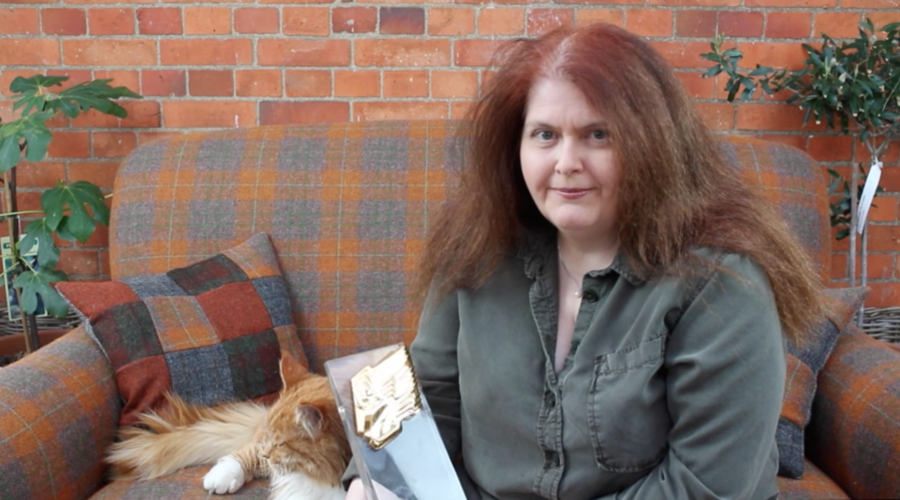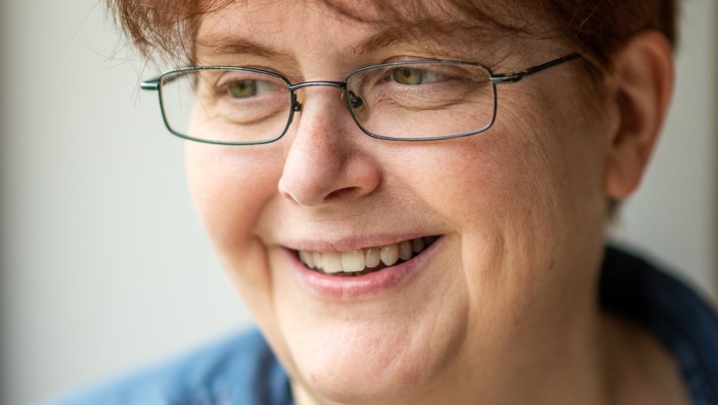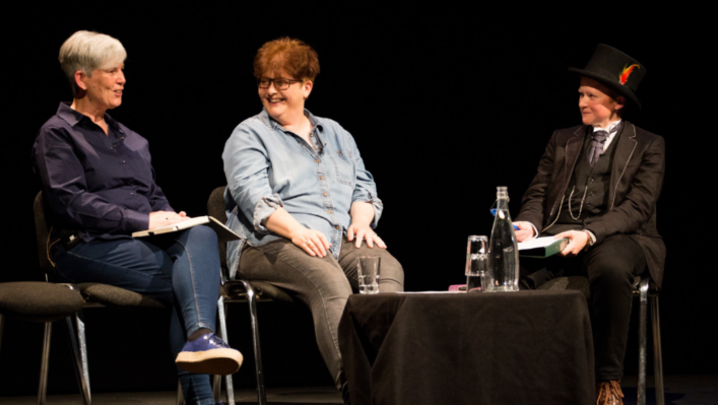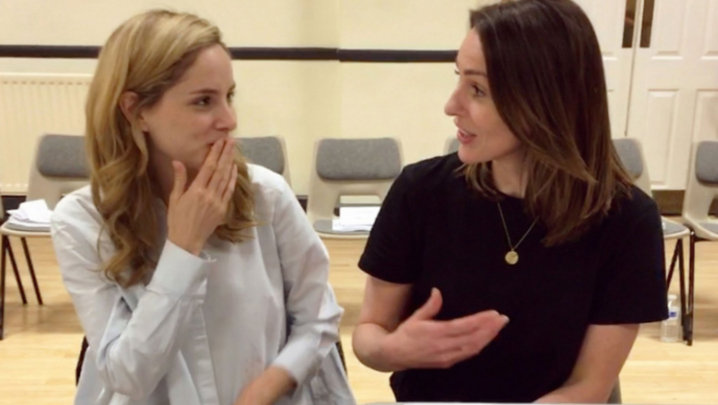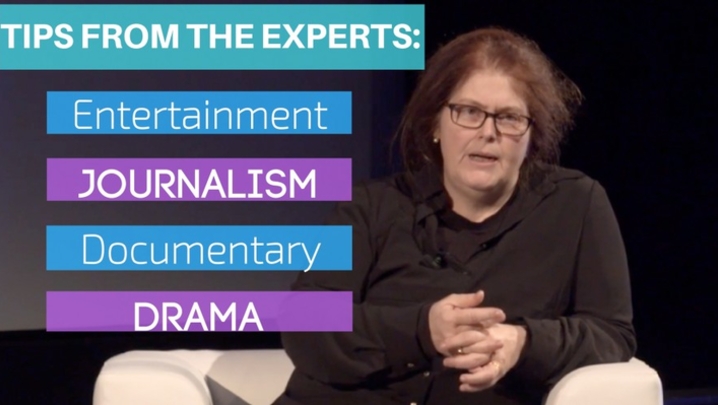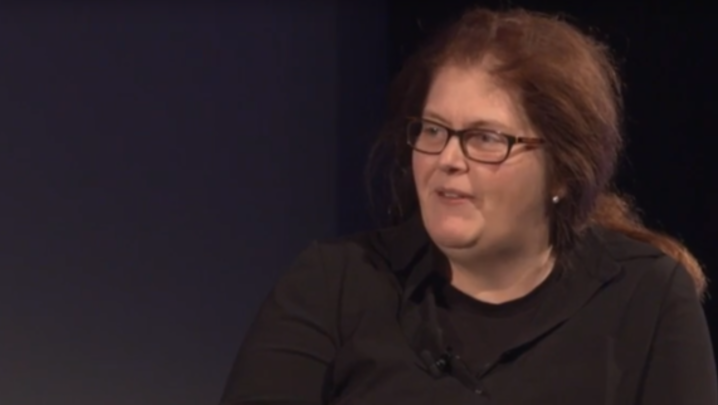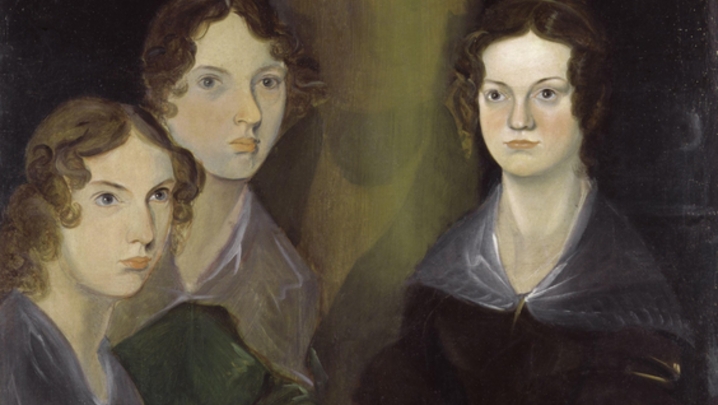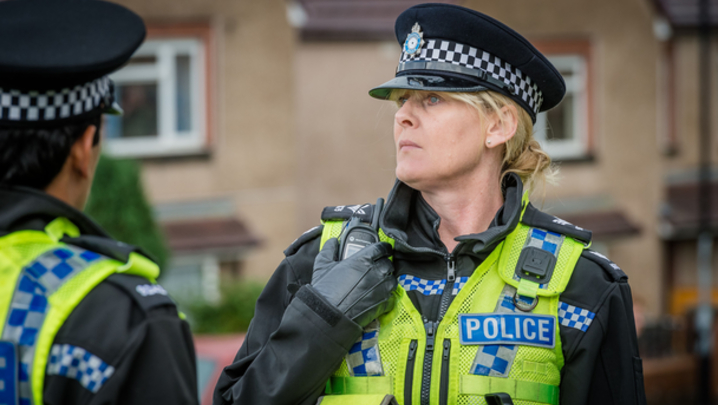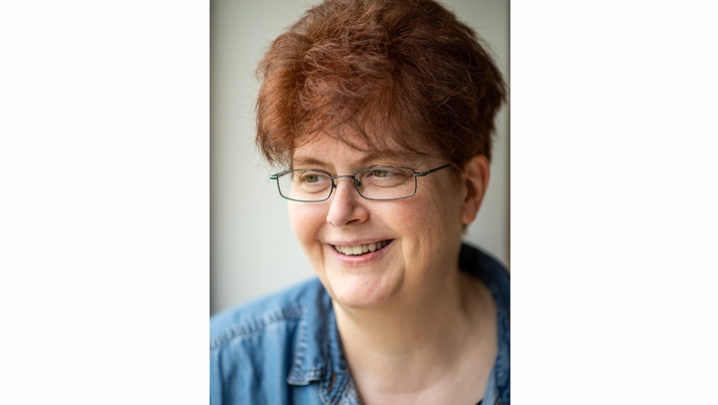Sally Wainwright is boring. She says so, and the woman behind such hits as Happy Valley, Last Tango in Halifax and Scott & Bailey, is to be believed. “I write people I want to be, not who I am,” she says.
The screenwriter received the Judges’ Award among others at the RTS Programme Awards 2017 for her “outstanding contribution to the UK’s television and media industry.”
“I feel very lucky that I have been able to achieve my ambitions and been able to do the things that I want to do,” she says humbly.
She is humble too about her past achievements: Baftas, RTS Awards, TV Choice Awards, Broadcast awards and more litter the shelves of her study in her Cotswold home.
“It’s nice to be recognised,” she says.
Wainwright is a demure figure - watchful, rather than dominant - but beneath that quiet exterior there is an iron core; there has to be if you want to become one of the most highly regarded screenwriters of modern time.
“I am not a particularly confident person,” she admits, “but when it came to my writing I was confident. I would always dare put it out there. I would always dare risk the responses.”
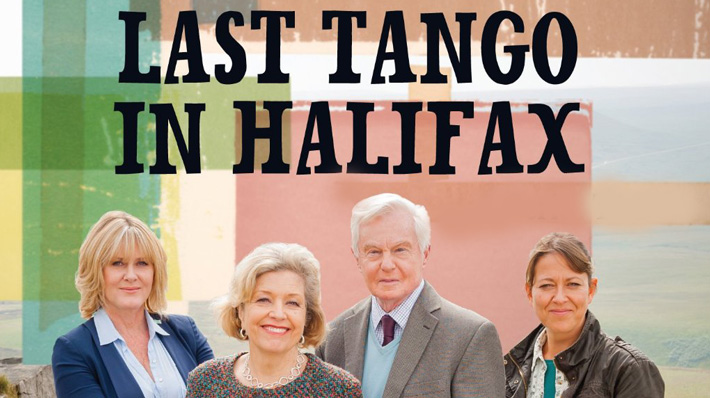
It’s advice she passes on too. At the RTS Student Masterclasses in November 2016, she told a crowd of budding screenwriters, “If you really believe in your talent, don’t have any inhibitions or shame in putting your work out there.”
It can be easier advice to give than to follow though. Wainwright remembers the first time she let anyone read her work.
It was a stage play that she wrote at university. “I thought it was really good,” she says. “There were some really strong emotions in it. I was very proud of it.”
Wainwright recalls sitting beside her friend while she read the script. “I was really nervous,” she insists, laughing at the memory. “I was just sitting there watching her read it. She was a mathematician though, so God knows why I cared what she thought, but she was my best friend.”
From that inauspicious start, her confidence grew and she started to write in earnest, eventually getting jobs writing for The Archers and then Coronation Street – something Wainwright credits with giving her a better understanding of storytelling. She told The Independent, “It made me start thinking in detail of how one thing leads to another, and how to construct a story with a beginning, middle and an end, rather than just an incident.”
Her first major solo success was popular comedy-drama At Home with the Braithwaites at the turn of the millennium.
However she says it was a personal set back in 2007 that spurred her to create the hit shows she is now best known for.
“Someone tried to sue me,” she says. “It was completely erroneous [and] they didn’t have a leg to stand on, but I had to deal with it and it was really upsetting at the time. That was when I started to write much more serious drama.”
That experience has coloured her writing. “The slings and arrows of life,” she says reflectively, “I think that’s what changes you as a human being, changes you as a writer. Life gets tougher […] the older you get, and you have to get tougher to deal with it.”
Not only do you get tougher, she says, you pick up more stories.
Wainwright recalls a meeting with her first agent where she worried that she only had one story. Her agent’s reply? “By the time you’re 50, you’ll have 20 stories.”
And she does: Happy Valley, Last Tango in Halifax, Scott & Bailey are just some of her hits from the past 10 years.
She laughs, “I’ve got so many ideas now and not enough time to do them.”
Her current project is Shibden Hall [Sally Wainwright's new show Shibden Hall has been renamed Gentleman Jack since this article was written - ed.], an eight-part dramatisation of the life of industrialist Anne Lister.
The show is based upon the diaries that Lister kept throughout her remarkable life.
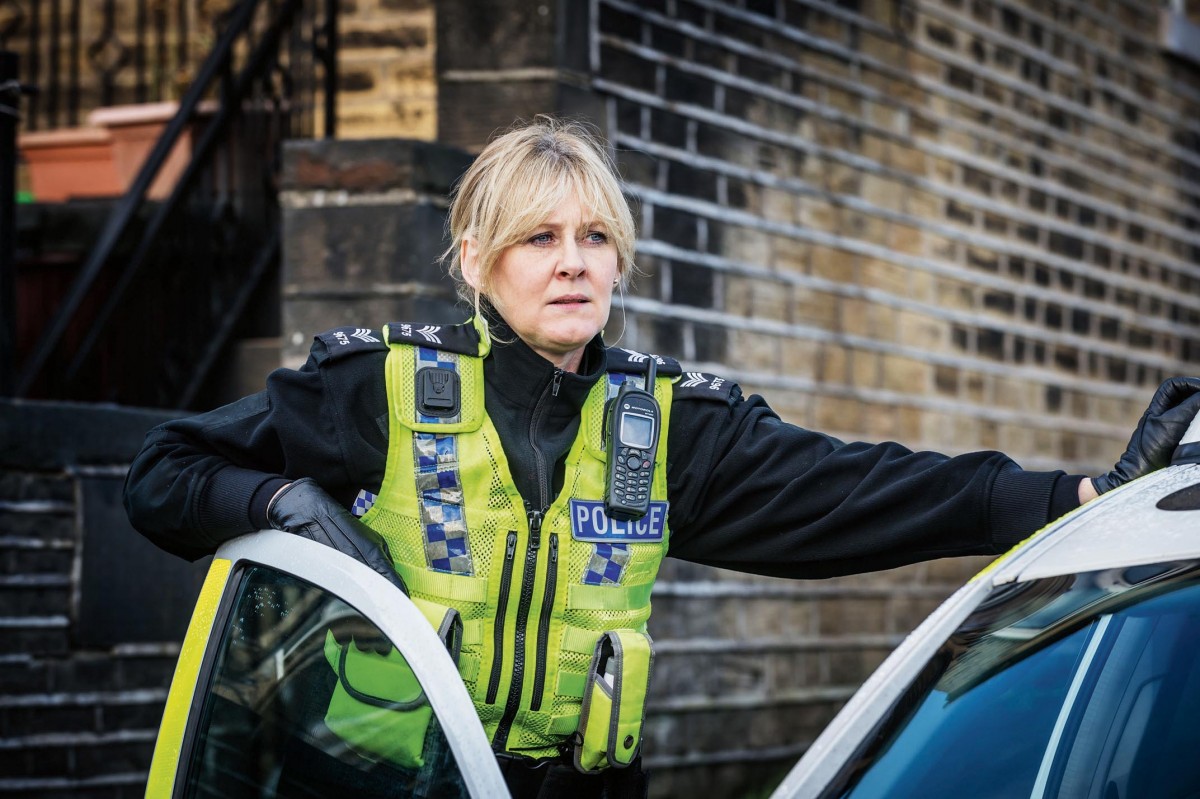
Lister made the first recorded ascent of Mount Vignemale in the Pyrenees , she studied brain surgery in Paris, and ran her own mines. “She did some extraordinary things at a time when women just weren’t allowed to do anything really,” says Wainwright. “The biggest thing was, she married a woman in 1834.”
“I’d say she’s my heroine, but she did some quite dark things as well. She did own mines, and she would have employed children down them. She’s quite a complicated person to like.”
Complicated characters are at the centre of Wainwright’s writing.
In the RTS Award-winning Happy Valley, both the heroine, copper Catherine Cawood (Sarah Lancashire), and the villain, Tommy Lee Royce (James Norton), are complex, rounded figures, both a mixture of light and dark.
“If you just construct goodies and baddies, it’s very two-dimensional,” Wainwright believes. “If you’re going to make your hero or heroine truly heroic [then] the person they deal with has to be as complex as they are.”
Norton received a Bafta nomination for his role as Tommy Lee Royce – something that Wainwright believes he deserves.
“I loved his audition,” she says. “He didn’t do a moustache-twirling baddie. He did this really soft, shy, diffident performance that made you think about why someone becomes like that in the first place.”
"There are some really exciting, fantastic, ballsy women writing fantastic stuff"
Norton is one of the actors who pops up in a number of Wainwright’s shows: Happy Valley and To Walk Invisible, with Suranne Jones starring in both Scott and Bailey and Unforgiven, and Sarah Lancashire in Happy Valley and Last Tango in Halifax.
“I suppose I do like working with the same people,” Wainwright reflects. “You’ve got a shorthand when you’re doing things – and you know that that person likes your work because they keep coming back.”
She maintains that her relationships with her actors is very good.
“They’re really respectful, the actors,” she says. “It’s the directors I get frustrated with.”
That frustration has led Wainwright to begin directing some of her own work.
“Directing what you’ve just written seems a natural extension,” she shrugs. “Why have a middle man? Why have somebody misinterpret it?”
She recalls a run-in with a director during the filming of RTS award-winning drama Unforgiven. “This guy really wanted to put his mark on it. He really wanted to change the third episode [and] make it his series rather than mine. [That would be] fine if it had been a more interesting version, but it just wasn’t,” she says, matter-of-fact.
Her directorial debut was on Happy Valley. Like writing, she says, “it is one of those things that I just knew I could do it, even though it’s all brand new.”
“Somebody warned me that the first three days would be really hard and then it would just click, and that is what happened.”
Wainwright is directing the first and last two episodes of the upcoming Shibden Hall. “I’m just writing episode three now,” she grumbles. “[It’s] the first episode that I am not going to direct, and I am really pissed off. It’s really good.”
Naturally for a screenwriter, dialogue is key to Wainwright’s work – and she recalls a fascination for it going back to childhood.
“I always liked …writing things down that other people said. It felt very vibrant. It felt so much more alive,” she says. “I love the idea of recreating reality.”
The ‘realness’ of the dialogue has become the hallmark of Wainwright’s work, as Andrew Anthony in The Guardian put it, “however dramatic, there is a respect for the drudgery and humdrum nature of much of life.”
“That’s something I really work at,” she acknowledges. “For me it’s all about authenticity. It’s all about believability. The worst thing in the world for me is for the audience to go ‘I don’t believe that.’ I would be cringing if I thought people were sitting at home going ‘nobody does that!’”
Which means we will not be losing the screenwriter to the silver screen any time soon.
“I have always loved telly,” she says. “You can do so much more in telly than in film. It seems very rare to be able to produce the kind of stuff that I would want to produce.” Although, Wainwright adds, “I’d love to have a go at making a film, just for the hell of it, just to see what it’s like.”
Sally Wainwright’s work is often praised for the strong female characters, and she has railed against the “Airfix models” of women on television.
She levels the criticism at male screenwriters who forget to fully round out the female characters.
“It’s more America than Britain, where any woman in any drama [is] usually someone’s wife rather than the lead, they’re always stick-thin, and they always have to be under about 35,” she says, frustrated.
Seventies TV musical drama Rock Follies was a key influence on her writing in that sense.
“It just felt very ground-breaking that it was about very arsey, opinionated, bad-tempered, arse-kicking women,” Wainwright explains. “It just had a real energy that I have very rarely [seen] on telly.
Her childhood love of the show is part of the inspiration for a TV musical of her own that she has in the pipeline.
“I’ve always liked the idea of trying to do something musical on telly […] but I think it’s really hard to pull off. I have got an idea… but it’s not on anyone’s desk yet,” she says cryptically.
“I don’t think you see anywhere near as many exciting women on telly as you should,” she says, returning to the subject of Rock Follies. “I think that’s why I write them.”
She is quick to rattle off a list of women – most of whom are comedy writers - who are doing great work writing fleshed-out women for TV.
“I thought Raised by Wolves [by Caitlin Moran] was fantastic. I don’t know why that didn’t get more attention that it got. Sharon Horgan: I think everything she writes is fucking brilliant.”
“I think there are some really exciting, fantastic, ballsy women writing fantastic stuff,” she says. “I personally feel that there is so little telly out there that’s aimed at a middle-aged woman like me.”
That feeling led Wainwright to creating Last Tango in Halifax, in which two widowed 70-somethings reconnect on a social networking site and rekindle a fleeting teenage romance.
She describes the show as the most personal thing that she has ever written, and based many details of the show on her own experience.
The series is based on Wainwright’s mother’s experience of getting remarried after her husband died, and has received critical acclaim – partly for the way in which it handled the themes of homosexuality.
In the show, Caroline (Sarah Lancashire), the daughter of one of the leads, comes out as gay, causing a rift to open between her and her mother (Anne Reid).
However in the third series, Wainwright killed off Kate, Caroline’s partner – a decision she describes as “a disaster”, adding “I wish I hadn’t done it.”
The storyline drew a lot of criticism, and now, two years on from the episode, Wainwright is still dealing with the fall out.
“When we announced Shibden Hall, there was an article in a gay magazine and it was talking about that [storyline], so every time it is mentioned you go ‘Oh God! Why did I do that?’”
“I was badly advised and I was stupid to listen to the advice,” she reflects. “It was really short term, [I was] desperate for a big story, [and I] should have spent longer trying to think of something else.”
“I got a lot of criticism from gay fans and I did ultimately feel like I had really let them down, and I really regretted it.”
That she is still furious with herself for the way she handled that storyline is testament to the drive which motivates Wainwright in her writing.
“You spend more time with [your] characters than you spend with your family,” she says.
At one point, her obsession with her work led her to begin her working day at 2am, and write through the night. “I don’t know if it was actually quite unhealthy to be doing that,” she adds contemplatively.
Now, however, with only Shidben Hall on the immediate horizon, the screenwriter is looking forward to taking her foot off the pedal a little.
“I have been working flat out for five years,” Wainwright reflects wistfully, as she gazes out of the conservatory window onto a sun-dappled lawn on the first good day of 2017.
What is she going to do in her free time?
Gardening and painting, she says. “I like watching things grow. Just flowers. I don’t think I am consistent enough to be good at vegetables.” She pauses. “Broad beans are alright. I can do broad beans.”
Sally Wainwright won the Judges’ Award at the Royal Television Society Programme Awards 2017. Her next project, Shibden Hall, is due to air in 2018.

